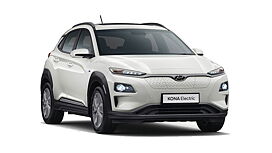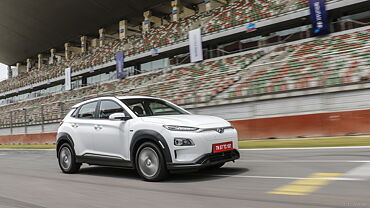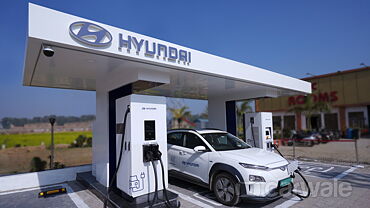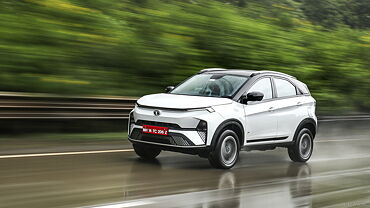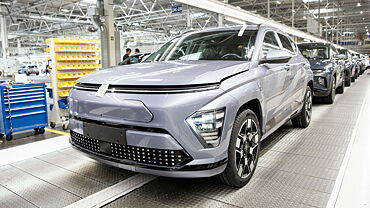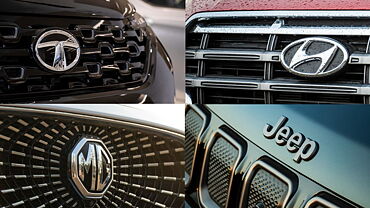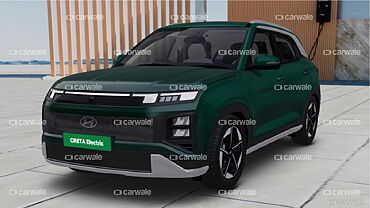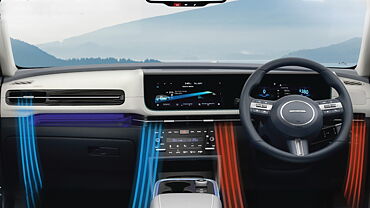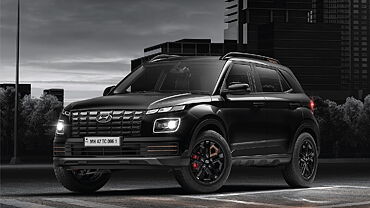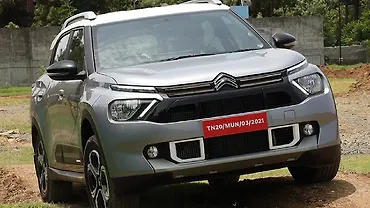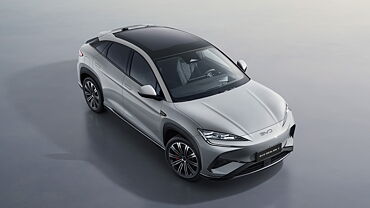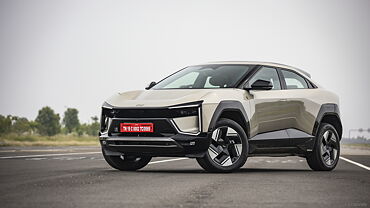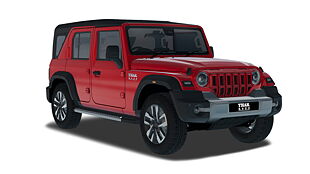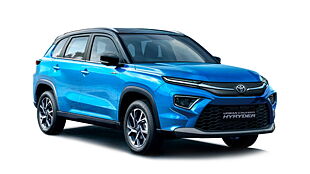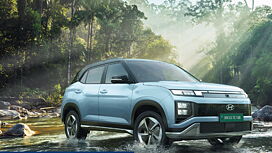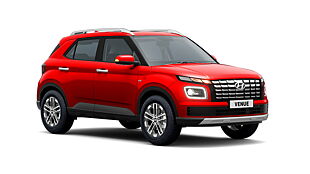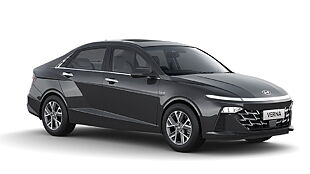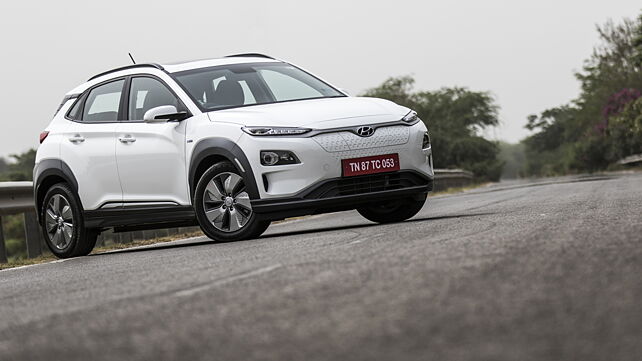
Hyundai Kona
India’s first long range fully electric vehicle, the Hyundai Kona EV was launched in the country in July this year. Hyundai has redefined electric mobility in the country by introducing a green and luxurious EV, the Kona. Owning the Hyundai Kona EV is now easier as it benefits from the reduction of GST on electric vehicles. Additionally, Hyundai Motor India is also expanding its green mobility portfolio in the country. The company is evaluating the feasibility of bringing Fuel Cell Electric Vehicles for India to strengthen its commitment towards a greener mobility ecosystem. But for now, here are the top feature highlights of the brilliant Hyundai Kona EV.

New age styling

The Hyundai Kona EV gets Bi-functional LED headlamps, sporty roof rails and R17 alloy wheels. The rear section features a skid plate and a rear spoiler with high mounted stop lamps. The Kona EV replicates the design element of a conventional SUV, but also adds a cool factor to it.

Premium interior

More choices only add up to the confusion. Hence, the Kona EV is only available in a single Premium variant and it includes leather seats, premium soft touch pad on the dashboard and a leather wrapped steering wheel. The vehicle gets a digital instrument cluster and metal pedals for sporty detailing.

Modern features

The Kona EV gets an advanced 17.77cms touchscreen display audio with radio, USB and AUX. The system is enabled with Apple CarPlay, Android Auto and Voice Recognition functions. Moreover, it also helps with charge management and gives out energy information and energy consumption figures. For added convenience the Kona EV features steering mounted audio and Bluetooth controls.

Distinctive features

For customised driving preferences, the Hyundai Kona EV gets three drive modes - Eco/Eco+, Comfort and Sport. The Kona EV allows one pedal driving, a feature which is quite popular in electric cars and is enabled by the vehicle’s regenerative braking system. Additionally, it also gets an option of driver-only air conditioning along with smart eco pedal guide and utility mode. There is also a paddle shifter for added convenience.

Uncompromised safety

The Kona EV is not just technologically advanced but it is also one of the safest cars in the country. The electric SUV features six airbags, ABS with EBD, ESC, vehicle stability management and hill assist control. Moreover, the vehicle also gets a rear camera with guideline, tyre pressure monitoring system, virtual engine sound system and disc brakes for all-wheels.

And there’s more…

The Hyundai Kona EV features an electric sunroof, button type shift by wire technology, ventilated and heated front seats for a comfortable seating and 10-way adjustable electric driver seat with lumbar support. Additionally, the vehicle is equipped with an electric parking brake with auto hold and FATC.

Fun to drive

The electric SUV is powered by a 39.2 kWh battery with an ARAI certified driving range of 452kms per charge. The 134bhp permanent-magnet synchronous motor is capable of sprinting from 0-100kmph in 9.7-seconds. The electric motor delivers abundant torque right from the word go and the speed surges past the 150kmph mark quite effortlessly.

Quick and efficient charging

The Hyundai Kona EV has a full-charge time of 9 hours and 35 minutes, which means that you can plug-in the Kona EV into a home wall box/AC charging switch before you go to bed and it will be ready to take you places by the time you wake up. And, if you need a top-up on the road, the 100kW DC fast charger at the charging stations will juice-up the compact SUV up to 80 per cent in just 54 minutes.

Easy to maintain

The per kilometre running cost of an EV is nearly five times lower than the cost of driving a regular gasoline powered vehicle. The possibility of a break-down is lower as electric vehicles get lesser moving parts as opposed to combustion engine vehicles which have more than 2,000 moving parts. Interestingly, the vehicle is available with three years/unlimited kilometres warranty, while the high voltage battery comes with a warranty of eight years /1,60,000kms.

